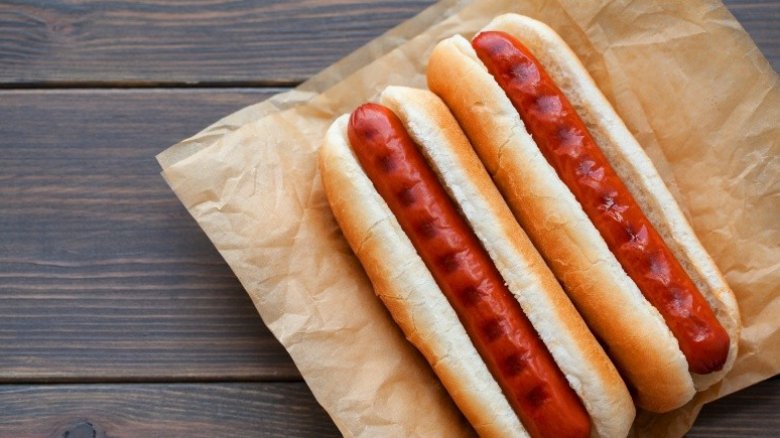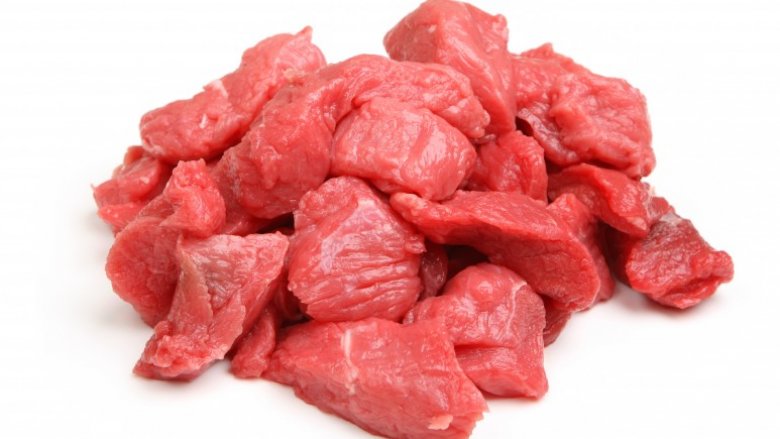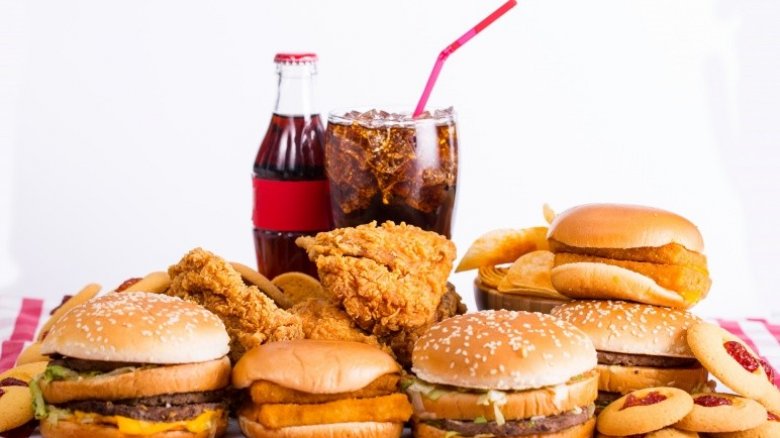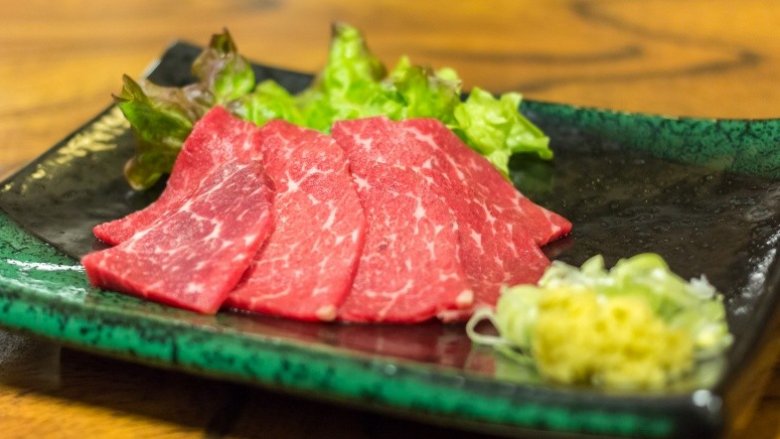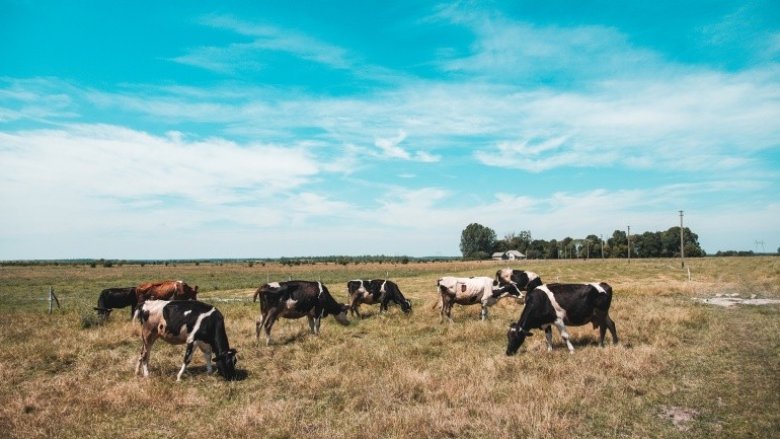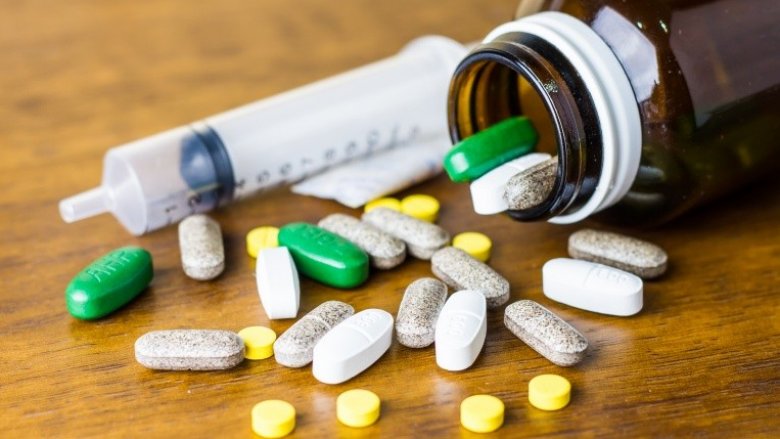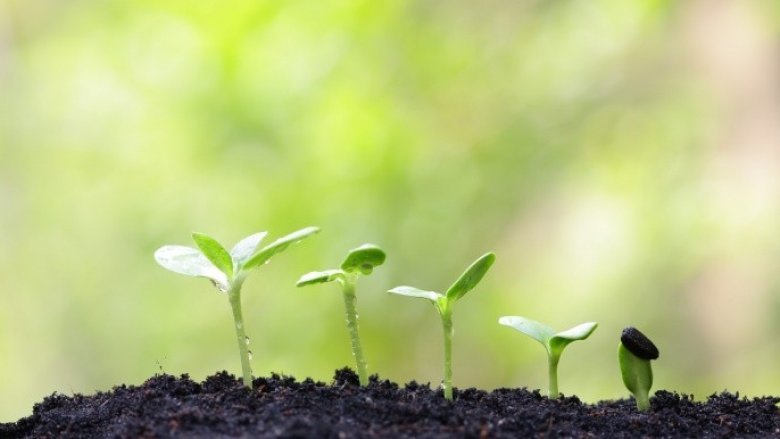The Real Reasons You Should Stop Buying Cheap Meat
We all adore finding a good deal. New jeans for $7? We're in! You're giving away your old couch? We'll be there in 10 minutes. Sure, maybe the quality won't be the absolute best, but they'll get the job done. However there are some areas of your life where you shouldn't be afraid to splurge, and that is the food you eat. Your health depends largely on what you put into your body, so it's a good idea to try to stay mindful of that and fight your thrifty tendencies at the grocery store. It's true that spending money on quality, healthy food will not only make you feel amazing, but will save some health care dollars down the road.
One food group where this is especially important is meat and poultry. Buying cheap meat sounds like a good deal at first glance, but it comes with a cost. Some disturbing studies have found cheap meat is not always made up of the meat you think you're buying. It can also be full of antibiotics and fillers. So when it comes to meat, buying the expensive cut is actually the best deal you could score.
Buying cheap meat comes with hidden costs
According to Meatonomics, American consumers of meat (and dairy) pay obscure external costs levied by food producers and the government that amount to about $414.8 billion annually. This staggering amount comes in the form of environmental impact, subsidies, taxes, and healthcare. When you stop to consider the hidden cost of buying what you believe to be inexpensive meat at the grocery store, the economic exchange hardly seems like one worth partaking in.
Why so cheap?
So why is meat so cheap? How is it possible for a fast food chain to sell two hamburgers with drinks and sides for five dollars? Americans spend the least amount of money on our food compared to other countries, so we expect our food to be cheap. The average American spends just 9.5 percent of his or her disposable income on food. It seems the answer to our cheap food lies in how the animals are kept and treated. The rise of large factory farms has kept our meat cheap, but at what cost?
Former US secretary of agriculture Dan Glickman told PBS we tend to take our food for granted and don't pay much attention to how it ends up on our plates. Large factory farms are efficient, but have their own problems, such as animal waste and water quality. Because the cows and other animals must be kept in close quarters, they can easily pass bacteria to one another. Dr. Robert Tauxe of the Centers for Disease Control and Prevention told PBS about the contamination that can spread. "I suspect that the industrialization of our meat supply opened up a conduit for salmonella, for campylobacter, and for E. coli O157 infections to pass through to the consumer," he explained.
CEO of the American Meat Institute Patrick Boyle added that meat can be kept cheap because of new innovations and efficiencies, but it seems these new efficiencies are not worth the risks.
Horse burgers anyone?
If you spent the summer traveling around Europe, first of all I hate you. Second, I hope you shelled out for the expensive meat, because some recent studies revealed the cheap stuff in some grocery stores might have been mostly horse-y.
The BBC reported that when Tesco Everyday Value Beef Burgers were tested in 2013, they contained 29 percent horse meat, and the company admitted the meat in its bolognese was up to 100 percent horse meat. Chief executive of Waitrose Mark Price told The Telegraph in 2013 we have to be willing to pay more for meat to avoid future scandals like this one. He explained that because manufacturers have to keep it cheap, they don't test the meat like they should.
And in the U.S., Tech Times reported in 2015 that while consumers assume they are buying cow meat when they pick up a package of ground beef at the grocery store, DNA testing shows otherwise. In a cited study conducted by Chapman University in California, 9 of 48 meat samples contained "additional meat species," of which two turned up traces of horse meat. The article suggests that meat vendors deliberately blend "lower-cost species" into more expensive ones for financial gain, a fact that does not bode well for the average customer shopping in the meat department of the local supermarket.
Risk of cancer
If the risk of eating a horse didn't scare you, how about this? Eating cheap meat products like bologna and bacon is linked to a slightly higher risk for cancer. The World Cancer Research Fund has declared red and processed meats as one of the causes of bowel cancer. The International Agency for Research on Cancer (IARC) has announced that cheap processed meat is now officially a carcinogen, which means we know it causes cancer. Actually this agency of the World Health Organization has labeled all red meat as a probable carcinogen.
Processed meat is a cheap alternative to more expensive cuts and includes hot dogs, deli meat, bacon, sausage, and ham. In the UK, 54 percent of bowel cancer cases are linked to lifestyle factors, and half of those are from processed meat. Eating these meats everyday can increase our risk for colorectal cancer by as much as 18 percent. American Cancer Society managing director of nutrition and physical activity, Colleen Doyle, MS, RD, explained the risks are serious, but it's still okay to indulge once in awhile. "We should be limiting red and processed meat to help reduce colon cancer risk, and possibly, the risk of other cancers," she explains. "The occasional hot dog or hamburger is okay."
The slaughtering matters
These factory farms don't sound like humane places to live, let alone be slaughtered. Research has shown how cows are slaughtered actually affects the quality of the meat produced from them. According to slaughtering guidelines posted by the Food and Agriculture Organization (FAO) of the United Nations, the animal's muscles contain glycogen which is converted to lactic acid after slaughter. Having that lactic acid produces tender, flavorful meat. When the animal becomes stressed before slaughter, they use up all their glycogen stores, which means less lactic acid. Of course this means tough, bland meat, but it also raises some serious questions about how we're treating these animals.
When you buy local, grass-fed beef, you're supporting farmers who care about the quality and environment of their animals and meats. Because these farmers raise fewer animals and spend more to take care of them, they must charge more for their meat. Putting in the time to find responsible and ethical farmers in your area is worth it.
In an in-depth 2013 report on animal slaughter, Rolling Stone revealed some ugly truths about cattle slaughtering practices in the name of cheap meat. In addition to feeding the cows antibiotics and restricting the animals' movements in cramped crates, suppliers "kept the animals fat and sad so they wouldn't fight back when led to slaughter." Of course, the most disturbing aspect of this ugly treatment of livestock is the high price paid in order to obtain cheaper meat.
Antibiotics without a prescription
Because it would be nearly impossible to keep a massive factory farm perfectly clean, there are going to be infections floating around. To prevent these infections, factory farmers feed the livestock small doses of antibiotics to promote growth and keep infections at bay. Actually feeding animals antibiotics can cause them to grow as much as 3 percent more, which means more money when you sell that meat.
Because this level of antibiotic use isn't enough to actually kill off bacteria, these farms are creating antibiotic-resistant bacteria. This means that the antibiotics we've always relied on to cure our infections are now less effective. According to microbiologist Dr. Glenn Morris, these tiny doses of antibiotics can lead to big problems for humans' health. If you were to eat meat that was contaminated with this antibiotic-resistant bacteria and become ill, your body might not respond to traditional antibiotics like it should.
According to U.S. News and World Report, traces of the antibiotics administered to animals can be found in the meat we buy and consume, a danger that especially affects younger children. A study conducted by the Centers for Disease Control and Prevention reports that two million people are infected annually by drug-resistant bacteria, which can be partially blamed on the decreasing effectiveness of the antibiotics given to livestock (and over-prescribed to humans by doctors). A majority of those infections directly affect children under the age of 5.
The Food and Drug Administration is taking this problem seriously and is monitoring antibiotic use more closely. "We need to be selective about the drugs we use in animals and when we use them," says William Flynn, DVM, MS, deputy director for science policy at FDA's Center for Veterinary Medicine (CVM). "Antimicrobial resistance may not be completely preventable, but we need to do what we can to slow it down."
Environmental concerns
Cheap meat doesn't just mean a cruel environment for the animals. Everyone's environment will suffer. On traditional farms, the animal waste can be used to fertilize the crops. In a large factory farm, there aren't enough crops to use up all that waste, so it has to go somewhere. The waste is shipped away and can end up leaking into waterways and lagoons. In Iowa alone, the Department of Natural Resources found that 99 waterways were contaminated enough to kill the fish.
According to Science magazine, the increasing demands for huge quantities of cheap meat is a phenomenon that greatly affects the Earth's biodiversity. Existing natural habitats are destroyed when huge livestock operations need more land to feed the growing meat operations, a practice that results in overwhelming species extinctions.
A 2014 Guardian report notes that while many people believe transportation vehicles contribute most to pollution, the meat industry actually creates more greenhouse gas emissions "than all cars, planes, trains, and ships combined." The cited study shows that 15 percent of emissions come from livestock, and most of that is traced back to the beef and dairy industries.
All of this proves that buying more expensive meats may be harder on your wallet, but it'll benefit you in just about every other way imaginable
